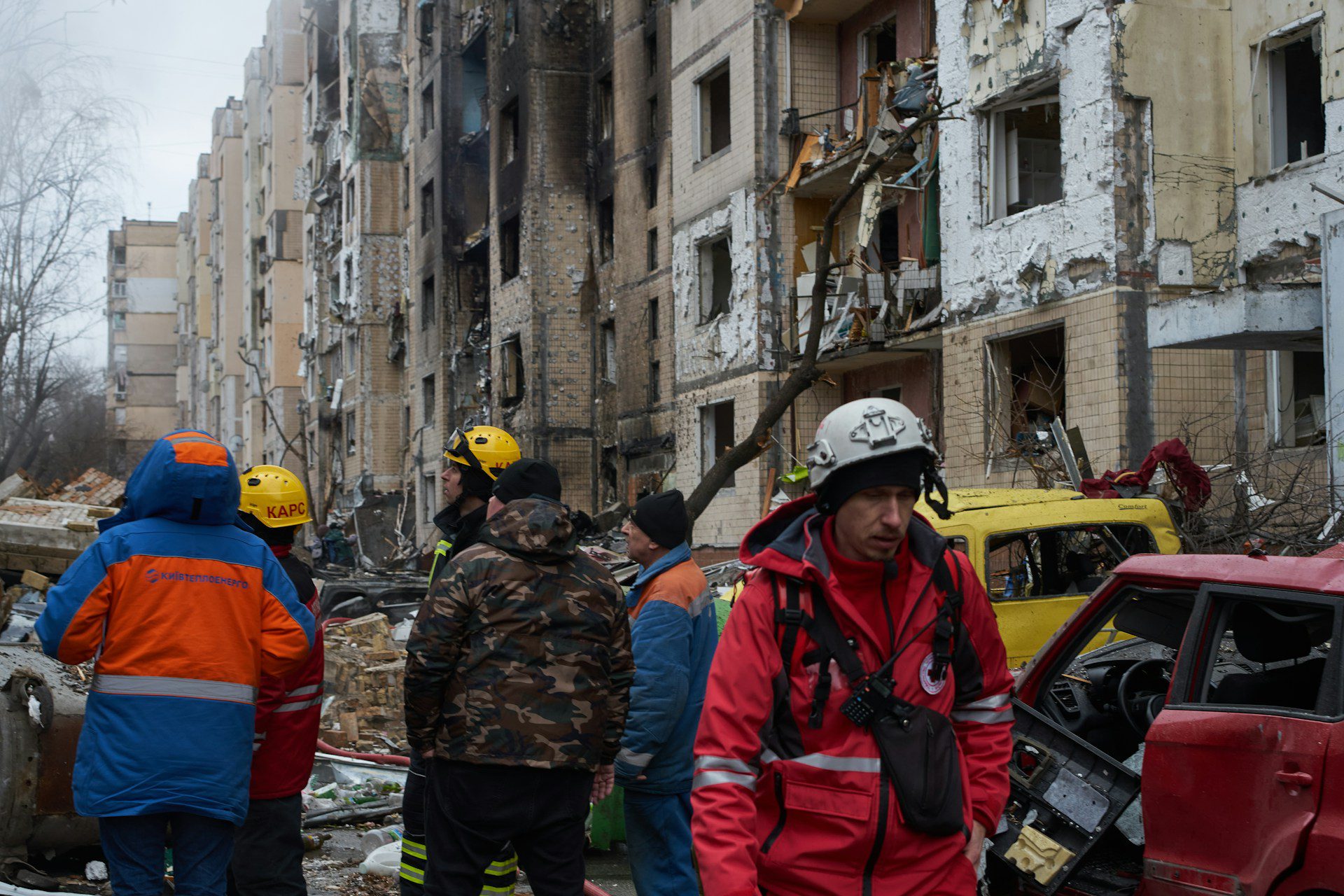
Russia’s War Has Created a Human Trafficking Crisis, Says U.N. Envoy
Refugees from Ukraine wait for a bus after crossing the Polish border on March 7, 2022. Russia’s war in Ukraine is rapidly leading to a human trafficking crisis. (Maciek Nabrdalik/The New York Times)
Russia invaded Ukraine on February 24 in an unprovoked act of aggression. Almost seven million Ukrainians have fled their country since the start of the war, 4.7 million of which are scattered around Europe, according to the United Nations. The war, meanwhile, is now mostly concentrated in the eastern part of Ukraine.
